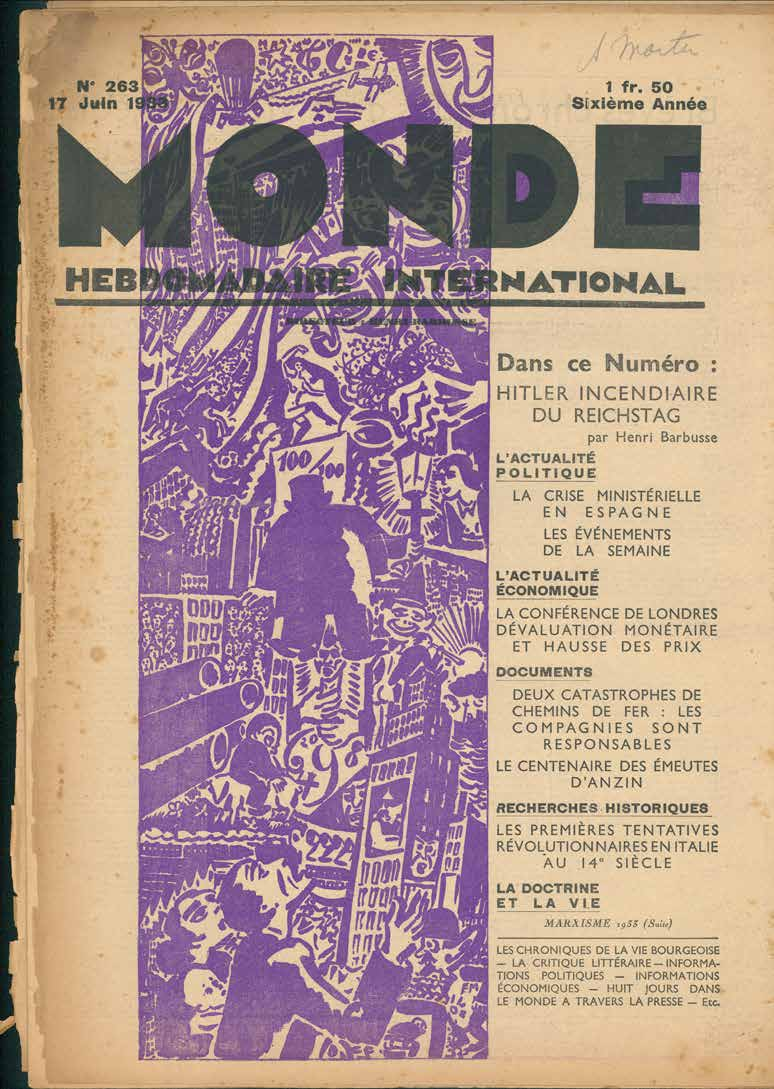Abstract
Resumen
El artículo examina el rol del Comité de Vigilancia de Intelectuales Antifascistas (C.V.I.A.) constituido en Francia en marzo de 1934. Propone la hipótesis de que la acción del C.V.I.A. fue parte de un clima mayor de renovación de la vida intelectual y política francesa de los años ‘30, y en él, ocupó un lugar importante en los debates referidos al surgimiento del fascismo; al pacifismo; a la tradición republicana y liberal; y al papel de los intelectuales en la lucha antifascista. Apoyado en el estudio de fuentes originales, se analiza la prensa periódica del período, tanto el boletín del C.V.I.A., Vigilance, como otras del campo más amplio del antifascismo cultural (Vigilance, Monde, Commune, Europe, Esprit, La Révo- lution Prolétariènne). Por último, se propone una reflexión historiográfica que vincula el estudio de los intelectuales con la Nueva Historia Política francesa.
Palabras clave
intelectuales – antifascismo – Francia – historiografía – entreguerras
Abstract
The article examines the role of the Vigilance Committee of Antifascist Intellectuals (C.V.I.A.) incorporated in France in March 1934. It proposes the hypothesis that the action of C.V.I.A. was a part of a larger climate of renewal of French intellectual life and politics of the ‘30s. In that framework it occupies an important place in discussions relating to the rise of fascism; pacifism; the republican and liberal tradition; and the role of intellectuals in the antifascist struggle. It also analyzes the periodical press of cultural anti–fascism (Vigilance, Monde, Commune, Europe, Esprit, La Révolution Prolétariènne), and final- ly it proposes a historiographical reflection about the relationship between the study of intellectuals and New French Political History.
Key Words
intellectuals – anti–fascism; France – historiography – interwar period

